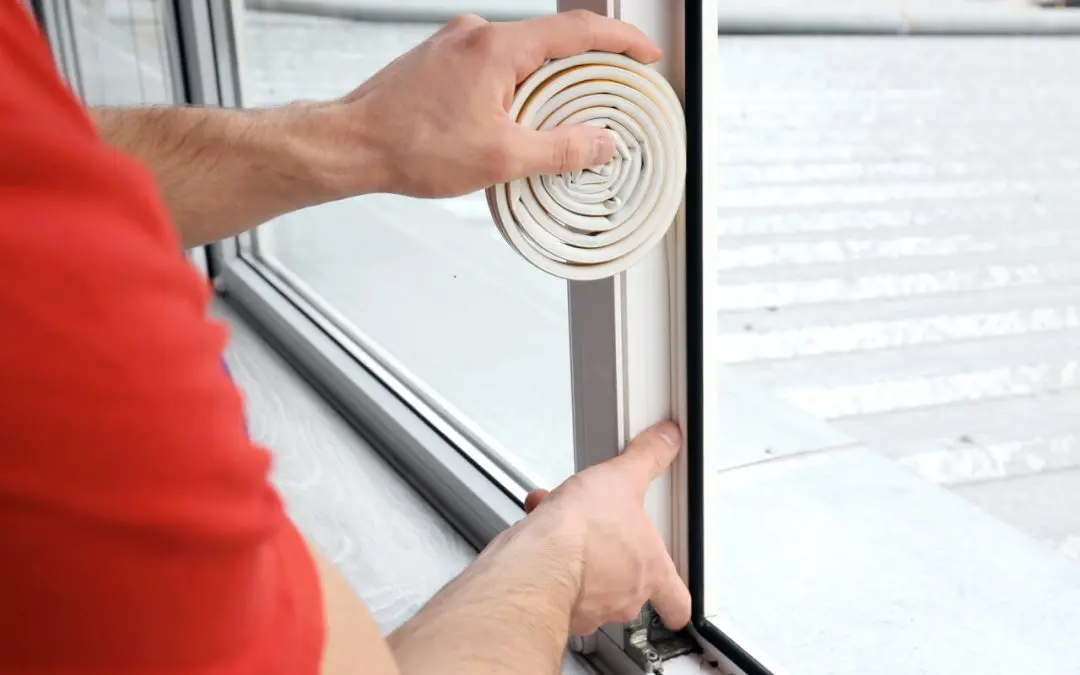As temperatures drop and heating bills rise, many homeowners begin searching for ways to reduce costs without compromising comfort. The good news is that you don’t need expensive overhauls to reduce your energy consumption significantly this winter. Simple issues, such as air leaks and inadequate insulation, account for the majority of heating losses. By dedicating a weekend to practical, low-cost maintenance, you will keep the warm air in and the cold air out, ultimately saving money and putting it back into your pocket. Taking control of your home’s efficiency is the smartest way to save energy this winter.
Seal the Envelope: The Quickest Way to Save Energy This Winter
The most dramatic energy savings often result from addressing air infiltration, the unwanted movement of air in and out of your home. Sealing these leaks is the quickest way to save energy this winter. Begin by conducting a thorough inspection of all potential leak points, particularly around windows and doors. Apply weatherstripping to the edges of all exterior doors and movable windows. This flexible material creates a tight seal that stops drafts in their tracks. For older windows, consider using a clear plastic window insulation kit. These low-cost kits, applied with a hairdryer, create an insulating layer of air between the glass and the plastic, drastically reducing heat transfer.
Another crucial area is where utilities enter your home, such as around cable lines, electrical outlets, and dryer vents. Use caulk to seal any gaps or cracks you find around these penetrations, especially on the exterior foundation and siding. These simple steps create a more efficient “envelope,” which is essential if you want to save energy this winter.
Focus on the Attic and Insulation to Save Energy This Winter
Heat rises, meaning your attic is ground zero for heat loss. Ensuring your insulation is adequate and properly installed is a major factor in efficiency. The recommended insulation levels vary by climate zone, but a visual check is a good starting point. If the insulation level in your attic is below the ceiling joists, you likely need more. However, before adding any new insulation, you must first seal any hidden air leaks originating from the living space below. Use caulk or expanding foam to seal around plumbing vents, electrical wires, ceiling fixtures, and the attic hatch itself. Air sealing must be completed before adding insulation, otherwise, the insulation will trap moist air migrating up from the house, potentially leading to mold and reduced efficiency.
Smart Heating Habits and Thermostat Management
Your habits and thermostat settings play just as big a role in efficiency as your physical home structure. Adopting smarter heating practices will immediately help you save energy this winter. If you haven’t already, install a programmable or smart thermostat. This allows you to lower the temperature automatically when you are away or asleep. Dropping the temperature by 7-10 degrees for eight hours a day will result in savings of up to 10% on your heating bill. Just be careful not to lower it too much, as this could cause your pipes to freeze. Additionally, use sunlight to your advantage. During the day, open curtains and blinds on south-facing windows to allow natural solar heat to passively warm your rooms. As soon as the sun goes down, close those same curtains and blinds to create an insulating barrier that helps keep that heat inside.
Optimize Your HVAC System to Save Energy This Winter
Your heating system is the largest energy consumer in your home, so optimizing its performance is non-negotiable. Start with the basics: change your furnace filter regularly. Next, check that your furniture or heavy drapes aren’t blocking any heating registers or cold air returns. Blocked vents prevent the circulation of warm air, leading to uneven temperatures and wasted energy. Finally, consider having an annual professional tune-up. A technician will clean the internal components, inspect for leaks in the combustion chamber, and verify that all parts are functioning at peak efficiency.
Frequently Asked Questions (FAQs)
What is the ideal thermostat temperature to save energy this winter while I’m away?
Most experts recommend setting your thermostat back to between 60 and 65 degrees when you are away from home or sleeping.
Should I insulate my hot water heater pipes?
Yes. Insulating the first six feet of the hot water pipes leaving your water heater is an easy DIY project that helps prevent heat loss.
Does using space heaters help save energy?
It depends. Space heaters may help you save energy only if you use them to heat a single room while keeping the central thermostat set to a significantly lower temperature. If you use space heaters to supplement a high thermostat setting, you will likely increase your energy consumption.
Are heavy curtains a good way to save energy?
Yes, heavy or thermal-lined curtains are excellent at reducing radiant heat loss through cold windows.
HomeVantage Home Inspections provides termite inspection services to homebuyers and sellers in Northern New Jersey. Contact us to schedule an appointment.

